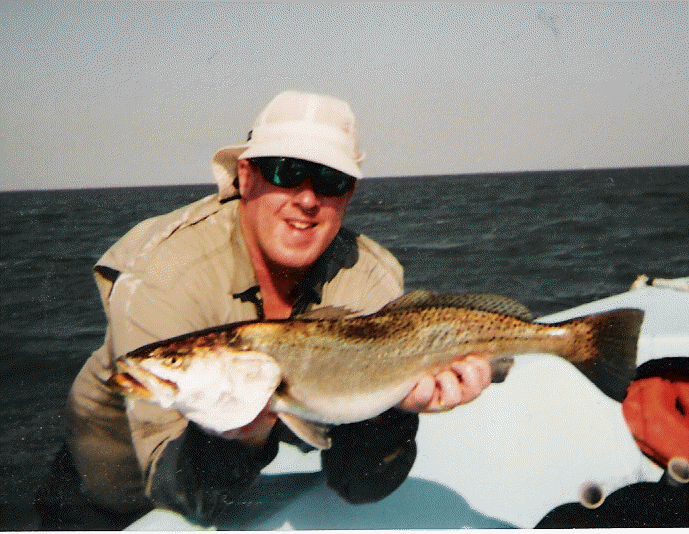Some of the CSB findings are ominous not only for BP but for the entire US Oil & Gas industry as well as other industries with inherent occupational hazards.
"The CSB conducted an examination of corporate safety culture, and we found BP's safety culture to be broken," said CSB lead investigator Don Holmstrom.
"We want OSHA to step up its inspection and enforcement at BP and all U.S. refineries and chemical plants, and to require those corporations to evaluate the safety impact of mergers, reorganizations, downsizing and budget cuts," CSB chairman Carolyn Merritt said.
Investigators also recommended that the overall industry make changes.
The American Petroleum Institute should work with the United Steelworkers to create specific "performance indicators" to measure process safety at refineries, as well as develop fatigue prevention guidelines.
The API issued a statement saying, "The U.S. refining and petrochemical industry is carefully reviewing the CSB report and is committed to learning where and how safety improvements can be made to avoid the terrible tragedy like the one that occurred at the Texas City refinery."
Merritt said she hopes the agency's $2.5 million investigation will reverberate throughout the refining industry, starting in corporate board rooms.
"It is my sincere hope and belief that our report and the recent Baker report will establish a new standard of care for corporate boards of directors and CEO's throughout the world," Merritt said. "Process safety programs to protect the lives of workers and the public deserve the same level of attention, investment and scrutiny as companies now dedicate to maintaining their financial controls."
Najmedin Meshkati, professor of civil and environmental engineering at the University of Southern California, said the report could have an even bigger impact than that.
"This report has a lot of implications beyond chemical processing," said Meshkati, human factors consultant to CSB investigators. Among the industries that could benefit are transportation and nuclear energy, he added.
It is unfortunate a tragic explosion which killed 15 and injured 180 people was required to make the point at BP that a broken safety culture has consequences and hopefully senior managers at other companies will examine their own safety culture. The findings of the CSB will undoubtedly be good news for the trial lawyers who are filling the airwaves in Houston trolling for clients for the pending class action. The CSB report that links cost cutting in the safety program after internal audits revealed serious shortcomings create a reality which looks penny wise and pound foolish indeed. Many refineries including BP carry high limit occupational accidental death and dismemberment policies on their workforce which are employer paid. Texas is unique also in that employers can opt out of the workers compensation system leaving an employer (probably not BP but possible several of the contractors) open to unlimited damages in the event they were negligent.
Stop and think about how many of the 180 people injured are now on long term disability. If you think the AD&D renewal was ugly imagine the LTD renewal. My point is not to make light of a sad situation but to point out that a broken safety culture often manifests itself in high disability costs as unsafe working conditions lead to injuries. This is particularly true at small and mid-sized businesses who lack safety programs to begin with and whose occupational hazards are well known.
"Where there is no vision, the people perish"-Proverbs 29:18.As a young group rep at UNUM I sold hundreds of group life and disability policies to small and mid-sized employers. Normally, smaller employers became interested in Disability and life coverage after a catastrophic accident, sickness or disability effected one of their employees or family members. People get religion quickly when they see someone they care about struggling financially due to a death or disability. As my career progressed and my market changed to the Fortune 1000 what quickly became apparent was that many larger employers paid little attention to their safety culture or their AD&D and LTD plans until a catastrophic event or an ugly LTD renewal focused attention on the root cause which for many industrial employers frequently was a sick safety culture.
Many larger employers may not be as well covered as they think if their Group Accident and Life Policies have not been scrutinized by a professional with expertise at isolating exposures and re-underwriting their policies to eliminate risk.
On 9-11 I happened to be in the home office for one of the largest writers of accident insurance coverage in the world where I managed at the time. As the news showed the planes crashing my company insured the airlines involved. One of my friends and co-workers, Paul, saw a plane fly into the the world trade center where one of his accounts had 4000 employees and he also had numerous friends, neighbors and customers. The companies with sound safety procedures had many employees get out in part due to the planning, vision and in some cases the heroism of safety professionals. The world trade center was not an industrial location so certainly white collar firms are in need of a safety vision and culture as well particularly where employees are concentrated. 9-11 changed the catastrophic risk markets forever.
This week in Iraq a chlorine explosion raised concerns about domestic exposure in the US.
The Fox TV show 24 recently depicted dirty nuclear devices being detonated in LA. It was unerrving but believable Does art imitate life or does life imitate art?
So how is your safety culture?
Got AD & D?
More importantly do you have Chemical, Biological and Nuclear coverage on your group AD&D, Business Travel Accident and Voluntary AD&D Plans?
Is your group life insurer big enough to sustain a catastrophic loss and remain solvent?
Did you know 0ne group life insurer with a 5% market share covered everyone who died on 9-11 in the north tower?
What is your specific and aggregate stop loss limits within your AD&D, Business Travel Accident and Voluntary AD&D programs?





No comments:
Post a Comment